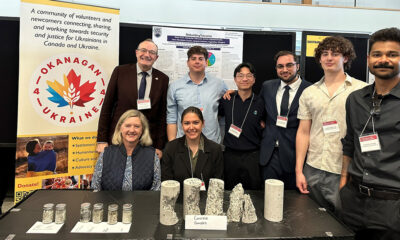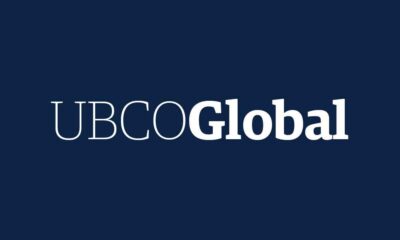Science
UBC Study Debunks Simulation Theory, Claims Reality is Non-Algorithmic

Recent research from the University of British Columbia Okanagan (UBCO) challenges the popular notion of living within a computer simulation. The study, led by Dr. Mir Faizal and his colleagues, asserts that the simulation hypothesis is not only improbable but mathematically impossible. Their findings, published in the Journal of Holography Applications in Physics, suggest that the fundamental nature of reality cannot be replicated by any algorithmic process.
Dr. Faizal, an adjunct professor at UBCO’s Irving K. Barber Faculty of Science, states that the universe operates on principles that exceed the capabilities of computational simulations. He emphasizes that the research reveals a profound truth: reality is structured on a level of understanding beyond algorithmic reach.
In a statement, Dr. Faizal explained, “It has been suggested that the universe could be simulated. If such a simulation were possible, the simulated universe could itself give rise to life, which in turn might create its own simulation.” This recursive theory raises intriguing questions about the nature of existence. Yet, according to Dr. Faizal and his team, their research demonstrates that a comprehensive understanding of reality demands more than a computational approach.
Implications of Quantum Gravity
The UBCO team contends that advancements in quantum mechanics have reshaped our comprehension of reality. The emerging theory of quantum gravity posits that even fundamental concepts like space and time are derived from deeper layers of information. Dr. Faizal articulated that while computers follow sequential instructions, some truths transcend this algorithmic framework.
“Think of a computer as following recipes step by step, no matter how complex,” UBCO elaborated in their release. “Some truths can only be grasped through non-algorithmic understanding—understanding that doesn’t follow from any sequence of logical steps.” This distinction is crucial, as it highlights the limitations of computational theories in fully capturing the complexities of physical reality.
Dr. Lawrence M. Krauss, a prominent physicist involved in the study, remarked on the broader implications of these findings. “The fundamental laws of physics cannot be contained within space and time, because they generate them,” he noted. He further emphasized that a truly fundamental theory of everything cannot solely rely on computational methods. Instead, it must incorporate a deeper form of understanding known as non-algorithmic understanding.
Significance of the Research
The research represents a significant breakthrough in scientific inquiry, challenging long-held assumptions about the nature of reality. Dr. Faizal asserted, “Any simulation is inherently algorithmic—it must follow programmed rules. But since the fundamental level of reality is based on non-algorithmic understanding, the universe cannot be, and could never be, a simulation.”
This study not only addresses the philosophical implications of the simulation theory but also underscores the limitations of computational approaches in physics. The team’s findings suggest that a comprehensive and consistent description of reality requires insights that go beyond algorithmic frameworks.
As research in quantum gravity continues to evolve, the UBCO team’s work marks a pivotal moment in understanding the fundamental nature of existence. For those interested in delving deeper, the complete release regarding the study is available on the UBCO website.
-

 World3 months ago
World3 months agoScientists Unearth Ancient Antarctic Ice to Unlock Climate Secrets
-

 Entertainment4 months ago
Entertainment4 months agoTrump and McCormick to Announce $70 Billion Energy Investments
-

 Lifestyle4 months ago
Lifestyle4 months agoTransLink Launches Food Truck Program to Boost Revenue in Vancouver
-

 Science4 months ago
Science4 months agoFour Astronauts Return to Earth After International Space Station Mission
-

 Technology2 months ago
Technology2 months agoApple Notes Enhances Functionality with Markdown Support in macOS 26
-

 Top Stories3 weeks ago
Top Stories3 weeks agoUrgent Update: Fatal Crash on Highway 99 Claims Life of Pitt Meadows Man
-

 Sports4 months ago
Sports4 months agoSearch Underway for Missing Hunter Amid Hokkaido Bear Emergency
-

 Politics3 months ago
Politics3 months agoUkrainian Tennis Star Elina Svitolina Faces Death Threats Online
-

 Technology4 months ago
Technology4 months agoFrosthaven Launches Early Access on July 31, 2025
-

 Politics3 months ago
Politics3 months agoCarney Engages First Nations Leaders at Development Law Summit
-

 Entertainment4 months ago
Entertainment4 months agoCalgary Theatre Troupe Revives Magic at Winnipeg Fringe Festival
-

 Top Stories7 days ago
Top Stories7 days agoFamily Remembers Beverley Rowbotham 25 Years After Murder


















